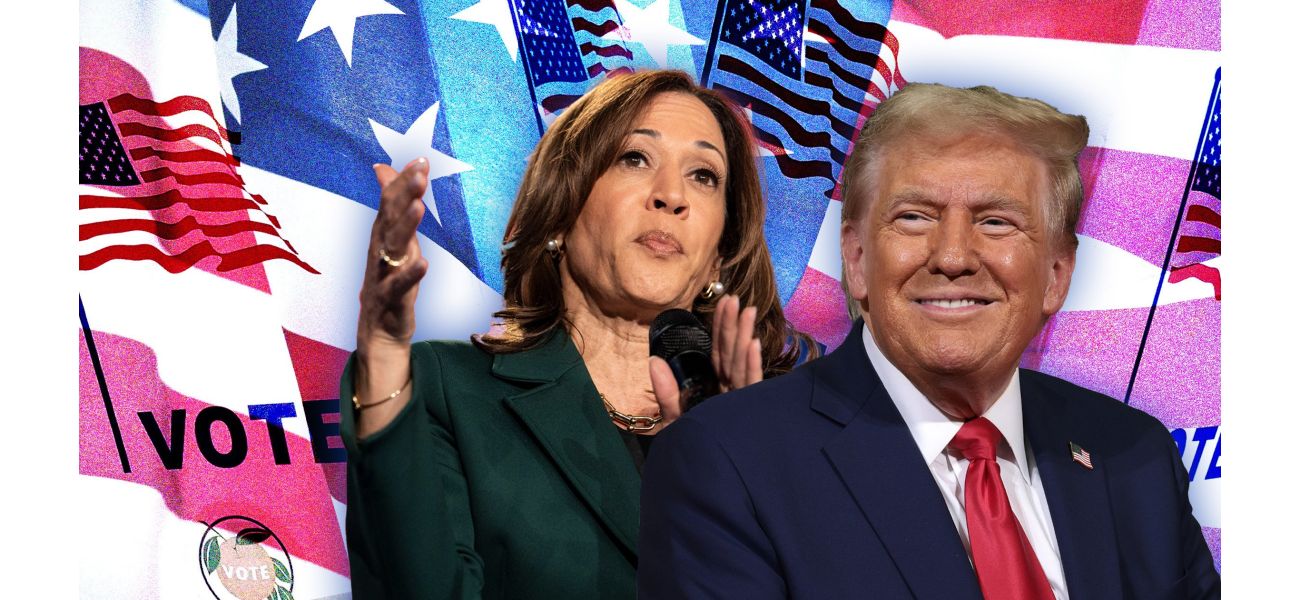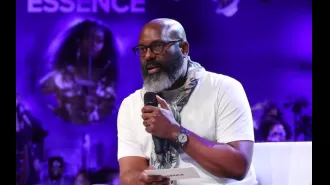What is the purpose and process of the electoral college?
It's time to return to school and understand the ins and outs of the US election process.
October 23rd 2024.

As we eagerly await the results of the 2024 US presidential election, it's important to understand the role of the Electoral College in determining the winner. Every day, we learn something new, but sometimes the popular saying that "we never stop learning" isn't entirely accurate. Today, for example, we're not heading to school like usual - we're going to college. Specifically, the Electoral College.
Before we dive into the complexities of this system, let's clarify one thing - the Electoral College is not a physical location. It's a method used in US presidential elections to determine which candidate gets to enjoy the luxuries of traveling in Air Force One. So what exactly is it, you ask? How does it work? When was it created? Is it controversial? Let's take a deep breath and find some answers.
In a nutshell, the Electoral College is a state-by-state competition. The US has 538 electoral "votes" up for grabs, allocated to each state based on its population. Instead of a direct popular vote, states award their electoral votes - usually all of them - to the candidate who wins the state's popular vote. To win the presidency, a candidate needs to secure at least 270 electoral votes.
Now, you might be wondering why this seemingly complicated system was put in place. Well, it all goes back to the Founding Fathers and the creation of the US Constitution in 1787. At the time, they were faced with the challenge of designing a fair system to elect the president in a diverse and rapidly-changing nation. After much debate, the Electoral College was established as a compromise between a direct popular vote and having Congress choose the president. Its primary goal was to prevent more populous states from dominating the election while still giving smaller states a say in the outcome.
So how does the Electoral College actually work? Each state gets a certain number of "electors" or votes, based on its number of congressional seats. Voters choose these electors, who are pledged to a specific candidate. For example, Florida has 30 electoral votes up for grabs. If a candidate wins the popular vote in Florida, they get all 30 electoral votes. Simple, right? Well, not quite.
Enter the concept of "swing states" - states where the outcome of the election is uncertain. Unlike "safe" states that consistently vote for one party, swing states can be won by either Democrats or Republicans. Because of this, they receive a lot of attention from candidates during campaigns. Winning a swing state can make or break a candidate's chances of winning the presidency.
Despite its role in determining the US president, the Electoral College is not without controversy. One of the main criticisms is that it can lead to situations where the candidate who wins the popular vote doesn't become president, which goes against the principle of democratic representation. Critics also argue that the system gives disproportionate weight to swing states and diminishes the influence of voters in heavily partisan states.
To illustrate this point, let's take a look at the 2016 election. Hillary Clinton won the popular vote but ultimately lost the presidency to Donald Trump due to the Electoral College. Ironically, Trump himself had criticized the system in the past, calling it a "disaster for democracy." However, as the saying goes, you never know until you try it. And now, after losing the 2020 election, he may have a different perspective on its effectiveness.
Calls for reform, including a shift to a national popular vote, have been gaining traction in recent years as debates over the fairness of the Electoral College continue. However, changing or scrapping the system would require cross-party agreement and a vote, which is not an easy feat. Plus, as you can imagine, the winning party may not be so eager to change the rules once they've won.
In the end, the future of the Electoral College is uncertain. While it may not be a perfect system, it does address some of the concerns raised by the Founding Fathers. And as long as it remains a part of the US Constitution, any changes will require a significant effort and agreement from all parties involved. So, let's see what the future holds for the Electoral College and the US presidential elections. Who knows, maybe one day dogs will even be able to vote.
Before we dive into the complexities of this system, let's clarify one thing - the Electoral College is not a physical location. It's a method used in US presidential elections to determine which candidate gets to enjoy the luxuries of traveling in Air Force One. So what exactly is it, you ask? How does it work? When was it created? Is it controversial? Let's take a deep breath and find some answers.
In a nutshell, the Electoral College is a state-by-state competition. The US has 538 electoral "votes" up for grabs, allocated to each state based on its population. Instead of a direct popular vote, states award their electoral votes - usually all of them - to the candidate who wins the state's popular vote. To win the presidency, a candidate needs to secure at least 270 electoral votes.
Now, you might be wondering why this seemingly complicated system was put in place. Well, it all goes back to the Founding Fathers and the creation of the US Constitution in 1787. At the time, they were faced with the challenge of designing a fair system to elect the president in a diverse and rapidly-changing nation. After much debate, the Electoral College was established as a compromise between a direct popular vote and having Congress choose the president. Its primary goal was to prevent more populous states from dominating the election while still giving smaller states a say in the outcome.
So how does the Electoral College actually work? Each state gets a certain number of "electors" or votes, based on its number of congressional seats. Voters choose these electors, who are pledged to a specific candidate. For example, Florida has 30 electoral votes up for grabs. If a candidate wins the popular vote in Florida, they get all 30 electoral votes. Simple, right? Well, not quite.
Enter the concept of "swing states" - states where the outcome of the election is uncertain. Unlike "safe" states that consistently vote for one party, swing states can be won by either Democrats or Republicans. Because of this, they receive a lot of attention from candidates during campaigns. Winning a swing state can make or break a candidate's chances of winning the presidency.
Despite its role in determining the US president, the Electoral College is not without controversy. One of the main criticisms is that it can lead to situations where the candidate who wins the popular vote doesn't become president, which goes against the principle of democratic representation. Critics also argue that the system gives disproportionate weight to swing states and diminishes the influence of voters in heavily partisan states.
To illustrate this point, let's take a look at the 2016 election. Hillary Clinton won the popular vote but ultimately lost the presidency to Donald Trump due to the Electoral College. Ironically, Trump himself had criticized the system in the past, calling it a "disaster for democracy." However, as the saying goes, you never know until you try it. And now, after losing the 2020 election, he may have a different perspective on its effectiveness.
Calls for reform, including a shift to a national popular vote, have been gaining traction in recent years as debates over the fairness of the Electoral College continue. However, changing or scrapping the system would require cross-party agreement and a vote, which is not an easy feat. Plus, as you can imagine, the winning party may not be so eager to change the rules once they've won.
In the end, the future of the Electoral College is uncertain. While it may not be a perfect system, it does address some of the concerns raised by the Founding Fathers. And as long as it remains a part of the US Constitution, any changes will require a significant effort and agreement from all parties involved. So, let's see what the future holds for the Electoral College and the US presidential elections. Who knows, maybe one day dogs will even be able to vote.
[This article has been trending online recently and has been generated with AI. Your feed is customized.]
[Generative AI is experimental.]
0
0
Submit Comment





